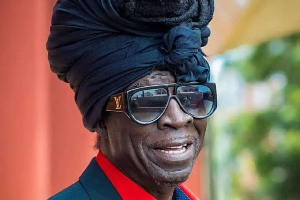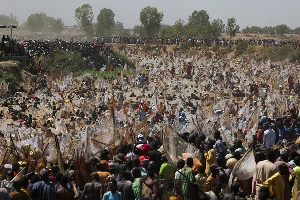A Ghanaian [name withheld] who was attacked in Ghana in 2015 on suspicion of being gay has succeeded in securing asylum in the United States.
Two law students of New York Law School’s Asylum Clinic secured the asylum for the Ghanaian who was code-named M.A for security reasons.
In May 2015, M.A. was brutally assaulted by a Ghanaian vigilante group known as Safety Empire in a local suburb of Nima, for befriending a gay man, based on the perception that M.A. might be gay himself. The local authorities were unwilling to prosecute the crime. Fearing for his life, M.A. made his way to the U.S. border, where he presented himself and requested asylum.
After being detained for nine months and unsuccessfully applying for asylum on his own, M.A. filed an appeal and was released on bond. He moved to the Bronx to live with a childhood friend.
M.A. then connected with Cornell Law School’s Asylum and Convention Against Torture Appellate Clinic, which helped him appeal his asylum loss at the Board of Immigration Appeals and before the U.S. Court of Appeals for the Ninth Circuit. In August 2018, Cornell’s Clinic was successful, and, as M.A. had requested, his case was transferred to New York Immigration Court for a new trial.
NYLS students Amin Guevarra-Fernandez and Olivia Kaplan, who were beginning their final year as NYLS evening students, took on the case, with supervision from Clinic Director and Adjunct Professor Claire R. Thomas ’11.
“When we first met our client, he was very reserved,” Guevarra-Fernandez says. “It took a while to get him to open up. He had been through a lot of trauma.”
A language barrier also complicated matters: M.A. only spoke Ghanaian Hausa.

L to R: Olivia Kaplan ’19, Prof. Claire Thomas, and Amin Guevarra-Fernandez ’19 Photo: NYLS
“When we were interviewing him, we had to be watchful for meaning or expression that would get lost in translation,” Kaplan says. “To draft the declaration, we had to ask him about his profoundly traumatic past and act with great sensitivity around issues of sexual orientation and gender identity in the country context.”
“We went in expecting the worst,” Guevarra-Fernandez says. “We prepared M.A. for hours of testimony. But in the end, the government attorney didn’t put up much of a fight. It was the best outcome we could have hoped for.”
M.A was granted asylum on August 19, 2019.
“He was so grateful when he heard the decision,” Guevarra-Fernandez says. “Now he can move ahead with his life.”
Ghanaian laws frown on gayism. Lesbian, gay, bisexual, and transgender groups have often operated in the dark fearing they might face public humiliation. Available data at Ghana’s Commission on Human Rights and Administrative Justice (CHRAJ) show that 36 of the 75 discrimination cases filed with CHRAJ since August 2013, were filed by LGBT people.
General News of Sunday, 22 September 2019
Source: dailymailgh.com













